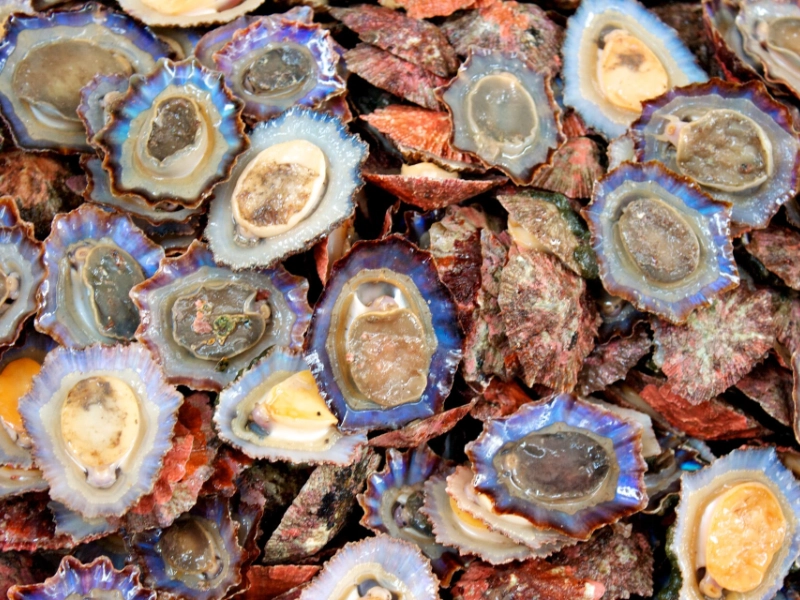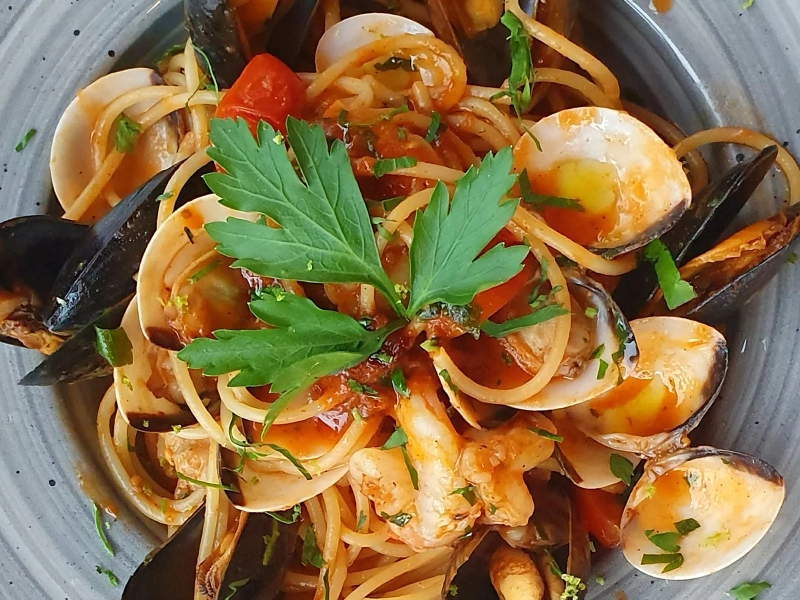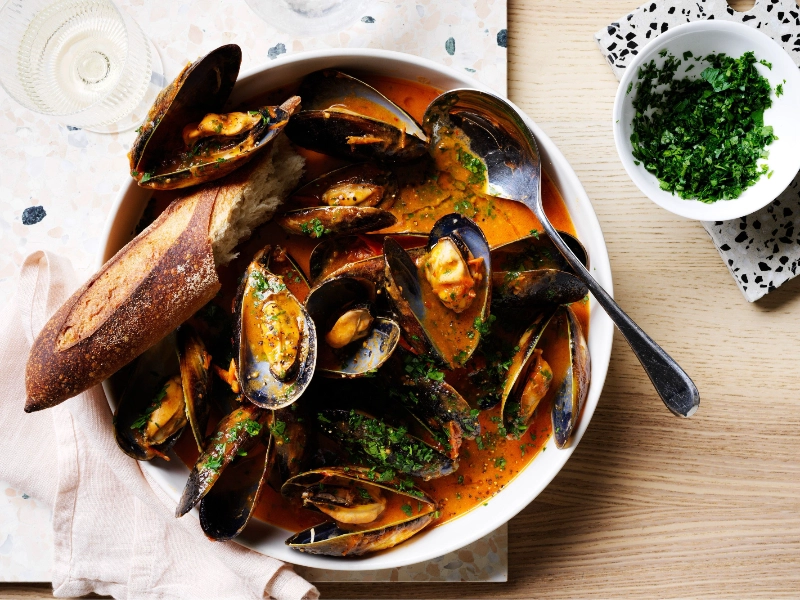Although general health depends on sleep, many people find it difficult to get enough good rest. While several elements affect the quality of sleep, nutrition is rather important. Shellfish, especially because of their high tryptophan level, are surprisingly foods that can improve sleep. An important amino acid, tryptophan is used by the body to generate hormones controlling sleep, serotonin and melatonin. Knowing how oysters relate to sleep may let you to choose foods that support more slumber.

An amino acid, tryptophan is precursor to serotonin, a neurotransmitter controlling mood and sleep. The body may turn enough serotonin levels into melatonin, sometimes known as the "sleep hormone." Melatonin signals the body when it is time for sleep, so encouraging a peaceful night. Foods high in tryptophan can help this process, so they are good for people trying to get better sleep. Excellent tryptophan sources are shellfish including scallops, crab, and prawns. These foods can help raise your tryptophan levels, therefore enhancing the quality of your sleep. Remember that tryptophan performs best when eaten as part of a balanced meal—ideally combined with carbs that enable tryptophan enter the brain. Foods high in tryptophan can help sleep by means of this synergy.

Apart from containing tryptophan, shellfish provides a variety of nutrients that support general wellness. Low in calories, shellfish are bursting in protein, omega-3 fatty acids, zinc, and vitamin B12. Among many body processes, these minerals are absolutely essential for immune support and heart health. Found in abundance in shellfish, omega-3 fatty acids have anti-inflammatory effects and can help lower tension and anxiety—two elements that frequently disturb sleep. Moreover, a healthy neurological system depends on zinc and vitamin B12, which can affect the quality of sleep as well. Including seafood into your diet not only increases your tryptophan intake but also improves your whole nutritional profile.

Including seafood in your meals can be rather good for sleep as well as tasty. Shellfish are easily included to your diet since there are several methods to cook them. Make a prawn stir-fry with vibrant vegetables and healthful grains for a fast and filling supper. Carbohydrates and shellfish taken together will boost tryptophan absorption, so encouraging better sleep. Making a side of spinach salad and a creamy seafood pasta with scallops offers still another choice. The spinach offers more nutrients, and the pasta's carbohydrates might help tryptophan's benefits be more pronounced. Another tasty and nutritious way to grill or bake shellfish using herbs and spices is While keeping your meals interesting, experimenting with several recipes will let you appreciate the sleep-enhancing effects of shellfish.

Your meals' timing might have a big effect on the quality of your sleep. Especially helpful late evening is eating shellfish or other meals high in tryptophans. A balanced supper including shellfish a few hours before bed could help boost serotonin and melatonin levels, so promoting a peaceful evening. But large dinners immediately before bed should be avoided since they could cause pain and disturb sleep. Try to have your shellfish dish as a smaller evening dinner so your body has time to break down before bed. This method guarantees you feel comfortable and relaxed as you wind down for the evening and helps maximise the tryptophan's sleep-promoting properties.
Although shellfish is a great source of tryptophan, you need also take into account other foods that could aid in sleep. Including a range of foods high in tryptophan, including dairy products, nuts, seeds, and turkey, can have other advantages. Like whole grains and fruits, complex carbs help to improve tryptophan absorption. Foods high in magnesium as well, such dark chocolate, bananas, and leafy greens, can help muscles relax and encourage sleep. Establishing a balanced diet including of these items will help to boost general sleep quality and raise your chances of obtaining a good night's rest. Combining shellfish with other foods that help you relax will provide filling meals that support greater sleep.
Although sleep quality is much influenced by diet, other lifestyle choices should not be underlined. Better sleep can result from establishing a regular sleep pattern, developing a soothing bedtime routine, and reducing screen use just before bed. As long as it's not right before bed, regular physical activity can also aid to enhance sleep quality. Using mindfulness techniques including yoga or meditation to help you manage stress will improve your capacity for falling and staying asleep. You can create an environment that promotes peaceful sleep by using a whole strategy combining a good diet with sensible lifestyle choices. Giving these elements top priority will enable you to maximise the advantages of shellfish and other foods for improving sleep.